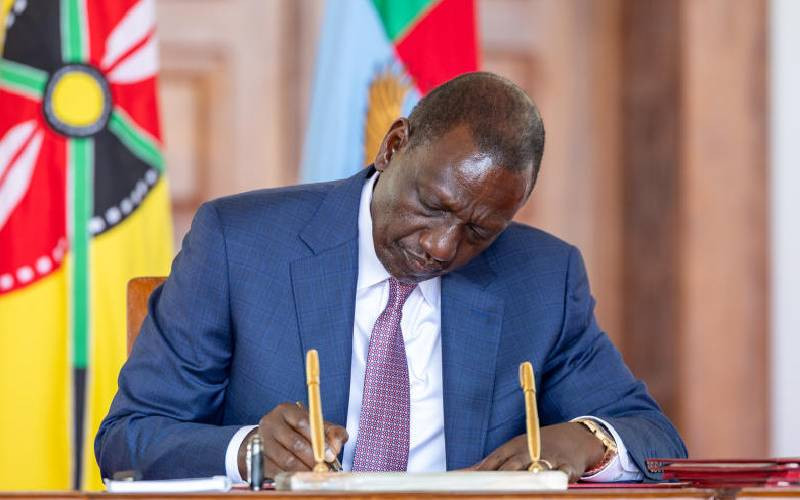The 2010 Constitution heralded a new era of governance rooted in transparency, accountability and the independence of key institutions. Yet, a persistent flaw undermines these principles: the President’s role in appointing officials to independent offices and commissions, as well as conferring prestigious honours like Senior Counsel.
It starts with prerogative then it becomes unilateral. This practice, though often ceremonial, creates perceptions of political bias and erodes public trust in institutions meant to serve as impartial guardians of democracy. It is time to strip the President of these powers, vesting them instead in independent bodies to ensure true autonomy and accountability. Under the Constitution, independent offices and commissions are tasked with protecting Kenya’s sovereignty, democratic values, and human rights.
Their independence is sacrosanct, yet the appointment process often involves the President selecting chairpersons from shortlists provided by selection panels or gazetting appointments after vetting. This role has been abused, fostering perceptions of executive influence.
A glaring example is the Senior Counsel controversy. In May 2020, the Law Society of Kenya (LSK) nullified a list of 24 nominees for Senior Counsel status, citing procedural flaws, bias and conflicts of interest within the nomination committee. The LSK’s concerns were clear: the process lacked transparency, and some selections appeared politically motivated.
Follow The Standard
channel
on WhatsApp
Then LSK President, Nelson Havi, asserted that though the society did not question suitability of the 24 advocates, the selection by Committee on Senior Counsel chaired by Supreme Court Judge, Justice Mohamed Ibrahim, which recommended 24 advocates out of 90 applicants for conferment of the rank of senior counsel, failed to meet the legal threshold, notably the absence of an LSK representative, Attorney General or any senior lawyer in the committee. A statement from then State House Spokesperson Kanze Dena stated the conferments were pursuant to the presidential prerogative as set out in the Advocate’s Act.
This incident is not isolated. Since the 2010 Constitution’s adoption, successive Presidents—Uhuru Kenyatta and now William Ruto — have selected chairpersons for independent bodies like the IEBC without consistently justifying their choices. For instance, the 2016 appointment of Wafula Chebukati as IEBC chairperson sparked opposition claims of bias toward the ruling Jubilee Party, yet no public explanation clarified the President’s rationale.
Similarly, the President’s nomination of Commissioners to various bodies has become the doorway to political patronage and contributed significantly to the erosion of their independence. These cases illustrate a recurring problem: the absence of reasoned statements leaves citizens speculating, often concluding that political loyalty trumps merit. The President’s discretionary role in appointments violates the tenets of transparency and accountability by allowing unchecked decision-making, undermining the independence of commissions from any person or authority. The LSK’s opposition to a July 2025 amendment Bill, which would grant the President unilateral power to confer Senior Counsel status, further underscores these concerns. The Bill seeks to allow the President to honour former high-ranking officials like ex-presidents or chief justices without committee input. The LSK and Senior Counsel Bar have rejected this, arguing it risks politicising a merit-based honour.
If a professional body like the LSK, which regulates a single sector, demands insulation from executive interference, how much more critical is it for independent commissions—operating at a national pedestal—to be shielded? To address this, these powers should be vested in the organs responsible for recruitment.
I have always questioned why Kenya’s Attorney General is nominated by the President and then appointed by the President after approval from the National Assembly. Since 2010, successive AGs have not shaken off perception of political anointing. Why can’t there be an open and public nomination process that incorporates names from members of the public directly to a vetting panel?
Follow The Standard
channel
on WhatsApp
By Lawi Sultan Njeremani
